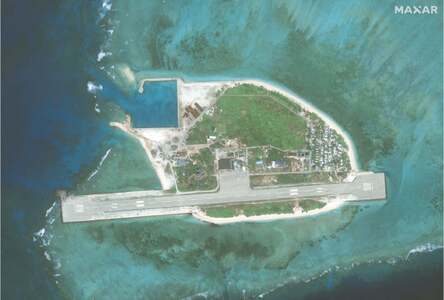RIYADH: Saudi Arabia, which has led a years-long military coalition in Yemen, announced on Tuesday a $1.2 billion grant for the war-scarred country’s internationally recognised government, the latest attempt to prop up its economy.
The money will help the government address its budget deficit and also fund salaries for civil servants and “support for ensuring food security”, the official Saudi Press Agency said.
An initial instalment of $250 million was expected to be disbursed on Wednesday, a Yemeni official said, speaking on condition of anonymity because he was not authorised to brief the press.
“This money will help ease pressure on the Yemeni economy... we count on this a lot,” Finance Minister Salem bin Brik said during a signing ceremony in Riyadh.
Saudi officials say they had no choice when, in 2015, they formed a military coalition and sent in fighter jets to support Yemen’s government against the Iran-backed Houthi rebels, who had seized the Yemeni capital Sanaa and then advanced south, forcing Yemen’s president to flee to Riyadh.
But rights groups long criticised the coalition for civilian casualties, and the Yemen Data Project, an independent tracker, says more than 28 per cent of the coalition’s 25,054 air raids were against non-military targets. These included private and state factories, transport infrastructure, water and electricity installations, schools and residential areas.
Fighting has dropped off sharply since a United Nations-brokered truce took effect in April last year, even though it lapsed in October. However, more than two-thirds of Yemenis depend on aid to survive, in what was the Arabian peninsula’s poorest country even before the war.
In April, Saudi ambassador Mohammed al-Jaber travelled to Sanaa for talks with Houthi officials.
Those meetings ended without a new agreement, though Jaber said in May he believed all parties were “serious” about wanting peace.
At the signing ceremony on Tuesday, Jaber said the $1.2bn grant was “one of the different steps taken by Saudi Arabia to support peace” and “de-escalation”.
“We will continue to speak to the Houthis and also to the government of Yemen to bring peace and stability to Yemen,” he said, though he offered no details on next steps for talks.
The UN special envoy for Yemen, Hans Grundberg, said in June that “economic warfare” between the opposing sides had compounded the country’s problems.
At the end of last year, Houthi drone attacks on government-run oil terminals halted hydrocarbon exports, the main source of income for the Saudi-backed government, which is headed by an eight-member Presidential Leadership Council unveiled in Riyadh shortly after the truce began.
Published in Dawn, Aug 2nd, 2023














































Dear visitor, the comments section is undergoing an overhaul and will return soon.